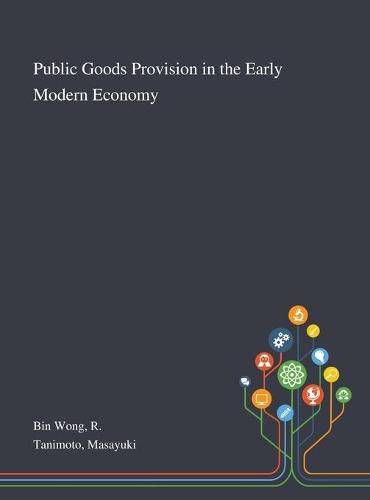Readings Newsletter
Become a Readings Member to make your shopping experience even easier.
Sign in or sign up for free!
You’re not far away from qualifying for FREE standard shipping within Australia
You’ve qualified for FREE standard shipping within Australia
The cart is loading…






This title is printed to order. This book may have been self-published. If so, we cannot guarantee the quality of the content. In the main most books will have gone through the editing process however some may not. We therefore suggest that you be aware of this before ordering this book. If in doubt check either the author or publisher’s details as we are unable to accept any returns unless they are faulty. Please contact us if you have any questions.
Historically, for sustaining and reproducing their economic lives, people have obtained goods and services through various ways. How did people tackle issues that the market did not handle well? This volume compares early modern efforts to provide public goods -defined in contraposition to market-mediated goods and goods provided through personal relations, such as kinship ties. We examine poverty and famine relief, infrastructure building, and forestry management in East Asia and Europe, using Japan’s Tokugawa era (1603-1868) as a benchmark from which consider the cases in Prussia, China, and England. Taking advantage of rich scholarship on the role of autonomous village and regional society in Japan’s early modern history, the volume highlights the diverse approaches to providing public goods across societies, relativizing the discussion on the formation of fiscal state drawn from the experience in advanced Western Europe, and it constructs the beginnings of an early modern basis for forecasting the diversity in public-goods provision future into the modern and contemporary periods. This work was published by Saint Philip Street Press pursuant to a Creative Commons license permitting commercial use. All rights not granted by the work’s license are retained by the author or authors.
$9.00 standard shipping within Australia
FREE standard shipping within Australia for orders over $100.00
Express & International shipping calculated at checkout
This title is printed to order. This book may have been self-published. If so, we cannot guarantee the quality of the content. In the main most books will have gone through the editing process however some may not. We therefore suggest that you be aware of this before ordering this book. If in doubt check either the author or publisher’s details as we are unable to accept any returns unless they are faulty. Please contact us if you have any questions.
Historically, for sustaining and reproducing their economic lives, people have obtained goods and services through various ways. How did people tackle issues that the market did not handle well? This volume compares early modern efforts to provide public goods -defined in contraposition to market-mediated goods and goods provided through personal relations, such as kinship ties. We examine poverty and famine relief, infrastructure building, and forestry management in East Asia and Europe, using Japan’s Tokugawa era (1603-1868) as a benchmark from which consider the cases in Prussia, China, and England. Taking advantage of rich scholarship on the role of autonomous village and regional society in Japan’s early modern history, the volume highlights the diverse approaches to providing public goods across societies, relativizing the discussion on the formation of fiscal state drawn from the experience in advanced Western Europe, and it constructs the beginnings of an early modern basis for forecasting the diversity in public-goods provision future into the modern and contemporary periods. This work was published by Saint Philip Street Press pursuant to a Creative Commons license permitting commercial use. All rights not granted by the work’s license are retained by the author or authors.